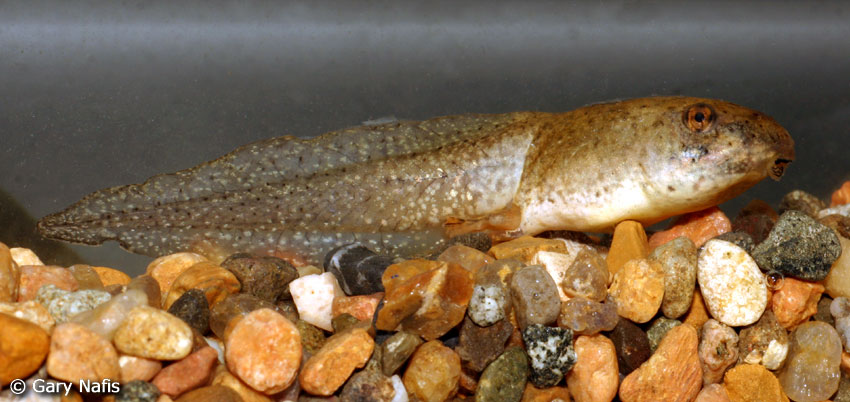Feelin' a tad older?
Bullfrog males viciously fight for
females to breed with from late winter to mid-fall in the southern range of
North America and from late spring to mid-summer (rainy season) in the northern range of North
America. Using their unique "jug-o-rum" mating calls, males are able to
lure in a female to begin reproduction with. The males hold on to the
females tightly, forcing her to release her eggs on
the surface of the water (up to 20,000 at a time!) as the male fertilizes them
simultaneously. The eggs that are laid do not have a shell, so they must
keep moist at all times. This is why aquatic environments are mandatory
for successful reproduction. When the eggs finally
hatch after a few days, the young tadpoles that survive are free to swim about the water.
They are completely independent of their parents and require no help with
anything. There is a high mortality among the eggs due to predation, so only
a few lucky ones make it to this stage in life.

Bullfrog tadpoles can grow anywhere from 10 to 17 cm! This stage in the bullfrog's life usually lasts 2 to 3 years, much longer than other amphibian species. These tadpoles are entirely aquatic and have gills and a long tail. Near the end of their metamorphosis, or their "second life," tadpoles start to lose their tails and grow legs to become a full bullfrog. During this time, the growing tadpoles also start to develop a digestive system that will accommodate a carnivorous diet, and the loss of their gills is seen. Once metamorphosis is complete, the new frog will make its way to land and become a mostly terrestrial hunter. Bullfrogs tend to live about 7 to 9 years total.
Back to
Home
On to
Interactions!